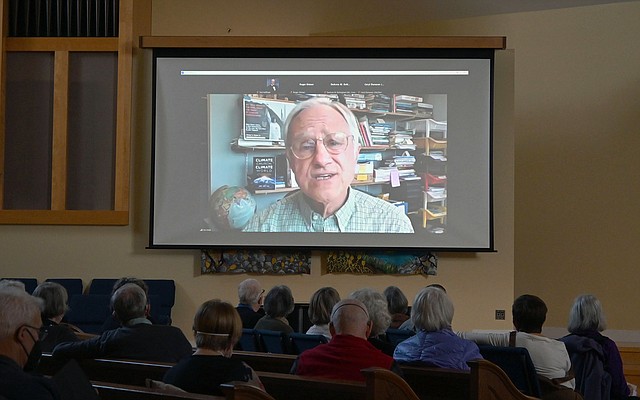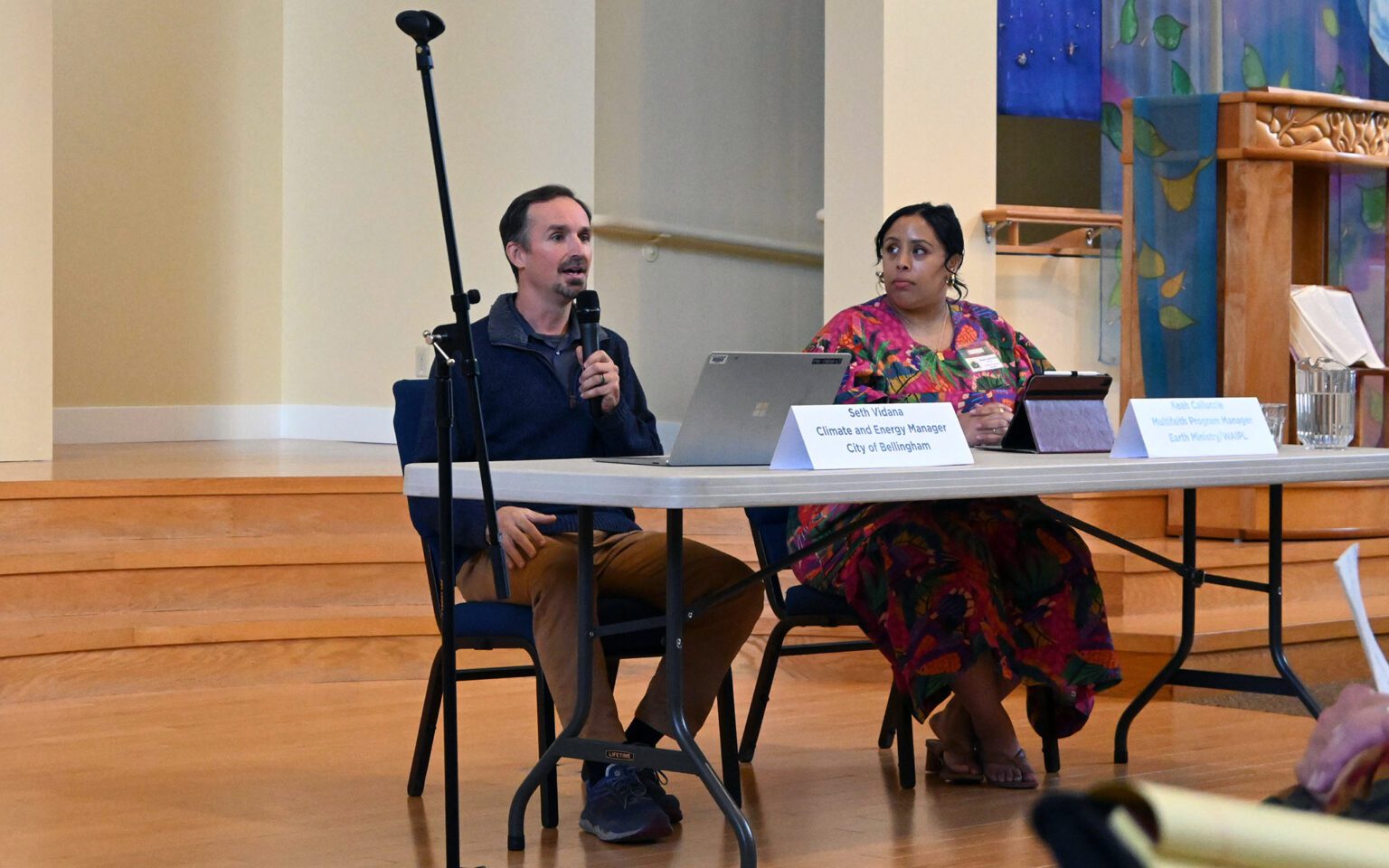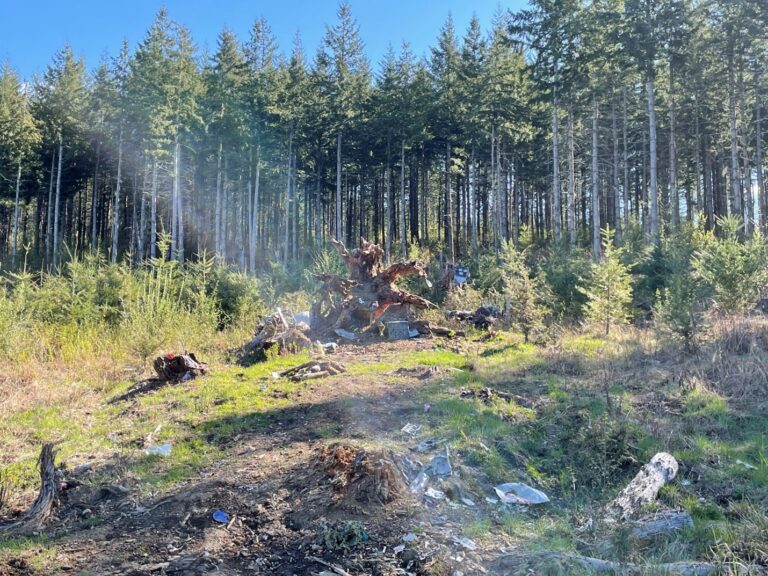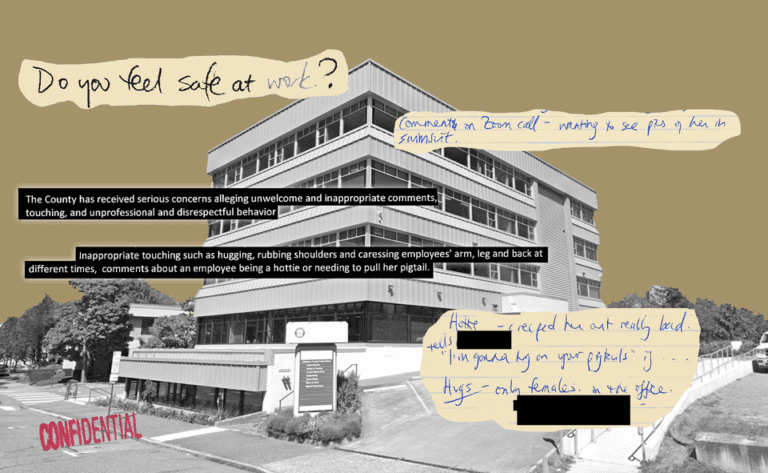The First Congregational Church of Bellingham hosted a Climate Revival event Nov. 5, bringing religious leaders, city employees and faith-based organizations together to talk about climate change, environmental justice and what community members can do locally to take action.
In Christian practices, revivals represent a renewed interest and invigoration in a specific subject, bringing practitioners closer to their spiritual guides and providing fresh hope for life. Climate revivals, which have been organized in towns and cities around the country, take a theological perspective when it comes to the moral demands and obligations the climate crisis presents.
Rev. Jim Antal, the keynote speaker, joined the congregation over Zoom from his home on the East Coast. He talked about how places of worship can help people process the grief they feel witnessing climate change.
“For anyone who loves life, who loves their children or who delights in the natural world, recognizing the realities of climate change will trigger grief,” Antal said. “Let’s make sure that our houses of worship are safe enough places for us to honestly share our grief. Doing so gives rise to a life of hope and action.”
Since 2011, the climate movement has been led by young people, people of color and Indigenous people, he said. The leaders within the environmental movement are encouraging advocates and policy makers to tackle climate change at its source by divesting and disassociating from the fossil fuel industry, Antal said.
Recent federal funding through the Inflation Reduction Act, and the Infrastructure Investment and Jobs Act, will provide almost $600 billion for climate action, he said.
 Reverend Jim Antal presents to the First Congregational Church of Bellingham over Zoom during the Climate Revival seminar on Nov. 5. Antal is the author of the 2018 book “Climate Church, Climate World.” (Olivia Hobson/Cascadia Daily News)
Reverend Jim Antal presents to the First Congregational Church of Bellingham over Zoom during the Climate Revival seminar on Nov. 5. Antal is the author of the 2018 book “Climate Church, Climate World.” (Olivia Hobson/Cascadia Daily News)
Renewable energy capabilities are hopeful, he said, with new research finding that a full transition away from fossil fuels will pay for itself in six years, and other research finding that solar, wind and hydropower could provide 65% of global electricity by 2030 (as compared to the 80% of global energy production coming from fossil fuels now).
The technology and solutions needed are already available, Antal said.
“I believe God is calling our generation to live a new story, a fossil fuel-free story,” Antal said.
Seth Vidana, climate and energy manager for the City of Bellingham, presented ways Bellingham is working towards carbon emission reductions and what individuals can do to make an impact.
Bellingham has seen a 30% growth in population since 2001, and while there has not been a 30% increase in carbon emissions during that time, the city is still a ways off from its climate goal of reducing community greenhouse gas emissions by 85%.
The City missed its greenhouse gas emission goals for 2020 by 25%, Vidana said. Without implementing any changes, the city’s emissions would plateau, but the goal is to reduce emissions to the point of avoiding the worst effects of climate change. These science-based targets will be released in the City’s updated climate action plan at the end of 2023, he said.
“This decade here is the decade of action,” Vidana said.
To achieve those targets, both the municipality and the community need to follow a set of climate goals the city has laid out, he said.
These goals include transportation electrification, building electrification (including water and space heat pumps), reducing electricity use indoors, and transitioning to low-carbon electricity. Currently, 34% of the electricity powering Bellingham homes is low-carbon, Vidana said.
Finally, the community needs to make their voices heard, Vidana said.
“Let people know about the changes you’re making,” Vidana said. “If you’re doing it, but not telling people, I’m not sure what the value is. That modeling helps other people feel comfortable to make those choices.”
Bringing communities together is an essential piece of Earth Ministry/Washington Interfaith Power and Light (WAIPL), said Keah Calluccie, a WAIPL multifaith coordinator and panelist at the Climate Revival.
The organization provides strategic guidance to religious communities to advocate for strong environmental policies and work towards environmental justice initiatives, Calluccie said.
“Communities on the margin are disproportionately facing the impacts of the climate crisis, and we watch people suffer and die because of these extreme weather conditions and everyday pollution,” Calluccie said.
By partnering people together who have different skills and strengths, the group can encourage solutions and widespread outcomes for all members of the community, Calluccie said. Addressing toxic contamination, salmon and orca recovery, fossil fuel divestment, and climate justice are all focuses of WAIPL’s work.
“We do need to work together and bring our individual strengths to create and sustain communities as we do this really heavy work,” Calluccie said. “When we appreciate our strengths and the strengths of each other, it’s easier to work together, collaborate and make a change in our individual communities.”




